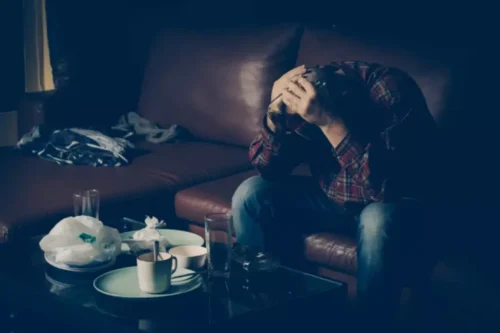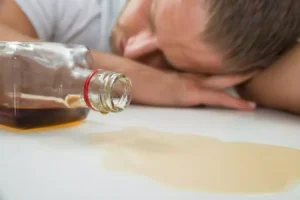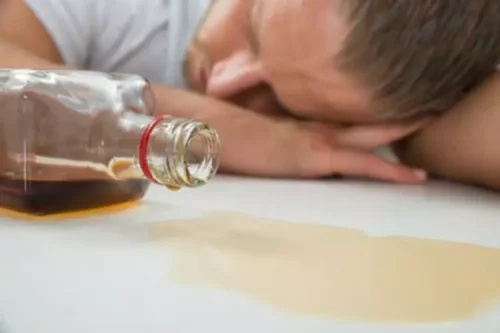
But regularly drinking more alcohol than these guidelines recommend can pose a number of health risks, including depression. does drinking make your depression worse Taking some time for productive relaxation can also help ease feelings of depression. It’s more likely to worsen negative mood states, along with physical health. Cognitive behavior therapy (CBT) is a type of psychotherapy.
How Inflammation Connects Alcohol and Depression
Always remember that effective treatments and supports are available to help you start feeling better. To help diagnose depression, your health care provider may use a physical exam, lab tests, or a mental health evaluation. These results will help identify various treatment options that best fit your situation. Addiction is a chronic, treatable brain disease, not the character flaw many people believe it to be, he stresses.

Alcohol and Depression

Still, with either time change, there can be an uptick in sleep disruption and mood changes. Some people may be less inclined to go back out after work if it is dark, for example, and that may impact mood as they have changes in social interactions, Benjamin explained. When the time falls back, we gain an hour of sleep, which may be helpful for many people. However, Foldvary-Schaefer explained that sleep disturbances more often occur in the spring when we add an hour of sleep loss to a chronically sleep-deprived state. On Sunday, November 3, most people in the United States will set their clocks back one hour as daylight saving time (DST) ends.
Depression symptoms
Then people “fall into a kind of loop” of drinking and depression, and the two conditions feed off each other. For many people with depression, symptoms usually are severe enough to cause noticeable problems in day-to-day activities, such as work, school, social activities or relationships with others. Some people may feel generally miserable or unhappy without really knowing why. If you think you have depression and often use alcohol to cope, Sharma recommends reaching out to a psychiatrist, therapist, or primary care doctor for a diagnosis and treatment guidance. Not everyone who drinks alcohol to cope with depression has alcohol use disorder (AUD), Sharma says.
It can also aggravate symptoms of pre-existing depression and endanger your health and mental health. Individuals with mental health conditions may be more likely to use alcohol as a treatment. Several studies suggest that military veterans are more likely to experience depression, post-traumatic stress disorder (PTSD), and misuse alcohol. Your healthcare professional may recommend other treatment options if your symptoms don’t improve. Binge drinking and heavy alcohol use can increase an individual’s risk of alcohol use disorder.

Why Does Borderline Personality Disorder Hurt So Much?
Mental health and wellbeing do tend to improve when you’re not consuming alcohol, so cutting down or stopping drinking is a great way to try and ease your symptoms. As alcohol can make antidepressants less effective, your doctor may not prescribe them if you’re drinking heavily. Fehling recommends that family and friends of heavy drinkers “build a cohesive message” and unite. Depending on your situation, it may be wise to locate and be in touch with a treatment center in case one is needed immediately. Support groups like Adult Children of Alcoholics and Al-Anon can also be helpful, Fehling says.
It may be described as feelings of sadness, loss, or anger that interfere with a person’s everyday activities. Depression affects people of all ages and backgrounds, including people who drink alcohol and people who don’t. Other reasons for the uptick included boredom and availability of alcohol. Drinking, Fehling says, “puts downward pressure” on our moods.
- Depression can be temporary, or it can be a long-term challenge.
- If you rely on alcohol to mask feelings of depression, you may find you become reliant on it – putting you at risk of alcohol dependence.
- While stopping drinking will not remove all the causes of low mood, it will remove a very important one.
- In fact, research shows that anxiety and mood disorders commonly co-occur with alcohol use disorder, and depression is the most common among them.
- If one treatment doesn’t work, talk with your healthcare professional.
Whatever the cause, remember that depression is not your fault and it can be treated. Nearly one-third of people with major depression (or major depressive disorder) also have alcohol use disorder. Research shows that depressed children are more likely to have problems with alcohol a few years down the road. Also, teens who’ve had a bout of major depression are twice as likely to start drinking as those who haven’t.
The FDA has approved one NMDA medication, esketamine (Spravato), for the treatment of depression. Although alcohol makes antidepressants less effective, it’s normally safe to drink small amounts of alcohol while taking them. For that reason, it’s a good idea to try cutting down the amount of alcohol you drink before seeking help with depression.
Call 999, contact your local mental health crisis team or go straight to A&E if you’re able to safely. Additionally, Prashant Sharma, a board-certified psychiatrist and professor at Johns Hopkins University, says drinking alcohol can reduce levels of the brain chemical GABA. Lerner stopped drinking while attending an inpatient program in June 2016.

